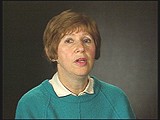
Oral History
Browse an alphabetical list of survivors’ oral histories. These interviews describe firsthand accounts and personal experiences during the Holocaust and World War II.
<< Previous | Displaying results 51-60 of 572 for "Oral History" | Next >>
-
Bart Stern describes how he survived to be liberated in the Auschwitz camp
Oral HistoryFollowing the German occupation of Hungary in March 1944, Bart was forced into a ghetto established in his home town. From May to July 1944, the Germans deported Jews from Hungary to the Auschwitz killing center in occupied Poland. Bart was deported by cattle car to Auschwitz. At Auschwitz, he was selected to perform forced labor, drilling and digging in a coal mine. As Soviet forces advanced toward the Auschwitz camp in January 1945, the Germans forced most of the prisoners on a death march out of the…
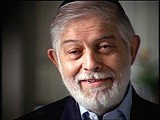
-
Bart Stern describes the role of friendships in survival at Auschwitz
Oral HistoryFollowing the German occupation of Hungary in March 1944, Bart was forced into a ghetto established in his home town. From May to July 1944, the Germans deported Jews from Hungary to the Auschwitz killing center in occupied Poland. Bart was deported by cattle car to Auschwitz. At Auschwitz, he was selected to perform forced labor, drilling and digging in a coal mine. As Soviet forces advanced toward the Auschwitz camp in January 1945, the Germans forced most of the prisoners on a death march out of the…
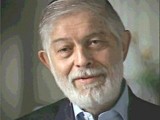
-
Bart Stern describes torture of prisoners during Hanukkah and a subsequent act of resistance to celebrate Hanukkah
Oral HistoryFollowing the German occupation of Hungary in March 1944, Bart was forced into a ghetto established in his home town. From May to July 1944, the Germans deported Jews from Hungary to the Auschwitz killing center in occupied Poland. Bart was deported by cattle car to Auschwitz. At Auschwitz, he was selected to perform forced labor, drilling and digging in a coal mine. As Soviet forces advanced toward the Auschwitz camp in January 1945, the Germans forced most of the prisoners on a death march out of the…
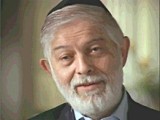
-
Beatrice Stern Pappenheimer describes struggle among prisoners for meager food rations in Gurs camp
Oral HistoryBeatrice's family lost their textile business and home when the Nazis barred Jews from owning property. The family was deported to camps. Beatrice, her sister, and their mother were sent to Gurs. The Children's Aid Society (OSE) later placed the girls in homes and convents, where they feared Allied bomb attacks, but escaped the horrors of camp life. Their parents perished.

-
Beatrice Stern Pappenheimer recalls leaving Gurs and receiving assistance from the Children's Aid Society (OSE)
Oral HistoryBeatrice's family lost their textile business and home when the Nazis barred Jews from owning property. The family was deported to camps. Beatrice, her sister, and their mother were sent to Gurs. The Children's Aid Society (OSE) later placed the girls in homes and convents, where they feared Allied bomb attacks, but escaped the horrors of camp life. Their parents perished.

-
Bella Jakubowicz Tovey describes a British soldier's visit while she was hospitalized in Bergen-Belsen after liberation
Oral HistoryBella was the oldest of four children born to a Jewish family in Sosnowiec. Her father owned a knitting factory. After the Germans invaded Poland in 1939, they took over the factory. The family's furniture was given to a German woman. Bella was forced to work in a factory in the Sosnowiec ghetto in 1941. At the end of 1942 the family was deported to the Bedzin ghetto. Bella was deported to the Graeben subcamp of Gross-Rosen in 1943 and to Bergen-Belsen in 1944. She was liberated in April 1945.
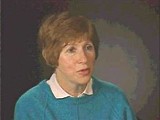
-
Bella Jakubowicz Tovey describes a meeting between her father and the Jewish council leader in Sosnowiec
Oral HistoryBella was the oldest of four children born to a Jewish family in Sosnowiec. Her father owned a knitting factory. After the Germans invaded Poland in 1939, they took over the factory. The family's furniture was given to a German woman. Bella was forced to work in a factory in the Sosnowiec ghetto in 1941. At the end of 1942 the family was deported to the Bedzin ghetto. Bella was deported to the Graeben subcamp of Gross-Rosen in 1943 and to Bergen-Belsen in 1944. She was liberated in April 1945.
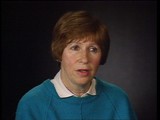
-
Bella Jakubowicz Tovey describes antisemitic remarks made as she was forced to march into the Graeben camp
Oral HistoryBella was the oldest of four children born to a Jewish family in Sosnowiec. Her father owned a knitting factory. After the Germans invaded Poland in 1939, they took over the factory. The family's furniture was given to a German woman. Bella was forced to work in a factory in the Sosnowiec ghetto in 1941. At the end of 1942 the family was deported to the Bedzin ghetto. Bella was deported to the Graeben subcamp of Gross-Rosen in 1943 and to Bergen-Belsen in 1944. She was liberated in April 1945.
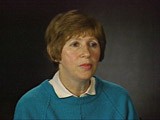
-
Bella Jakubowicz Tovey describes conditions in Bergen-Belsen
Oral HistoryBella was the oldest of four children born to a Jewish family in Sosnowiec. Her father owned a knitting factory. After the Germans invaded Poland in 1939, they took over the factory. The family's furniture was given to a German woman. Bella was forced to work in a factory in the Sosnowiec ghetto in 1941. At the end of 1942 the family was deported to the Bedzin ghetto. Bella was deported to the Graeben subcamp of Gross-Rosen in 1943 and to Bergen-Belsen in 1944. She was liberated in April 1945, and…
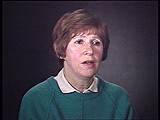
-
Bella Jakubowicz Tovey describes the confiscation of her family's property
Oral HistoryBella was the oldest of four children born to a Jewish family in Sosnowiec. Her father owned a knitting factory. After the Germans invaded Poland in 1939, they took over the factory. The family's furniture was given to a German woman. Bella was forced to work in a factory in the Sosnowiec ghetto in 1941. At the end of 1942 the family was deported to the Bedzin ghetto. Bella was deported to the Graeben subcamp of Gross-Rosen in 1943 and to Bergen-Belsen in 1944. She was liberated in April 1945, and…
